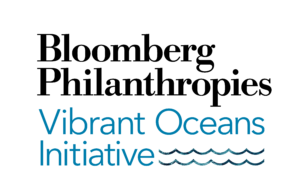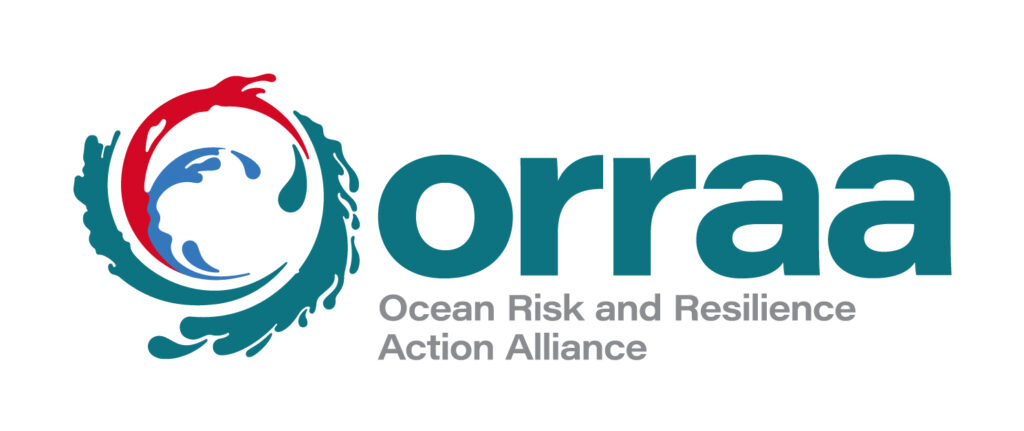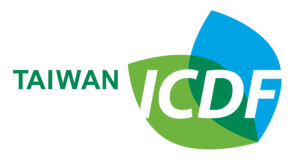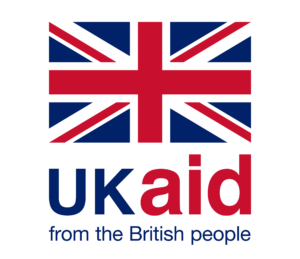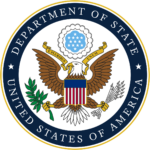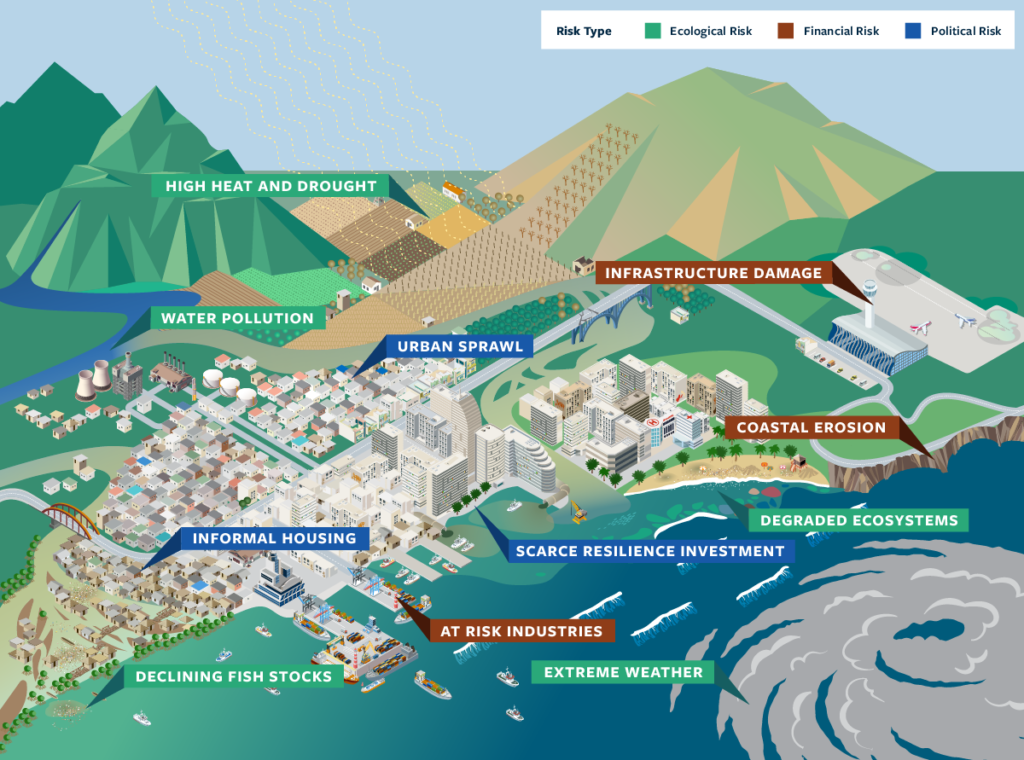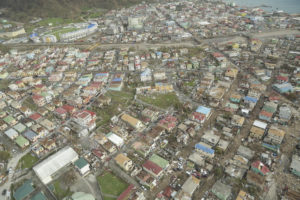Coastal cities and island states are vital to the economic security of billions. The climate crisis poses an existential threat. Lives, infrastructure, trade, blue economies, and the natural world are at risk.
CORVI is a decision support tool for leaders who need to make smart climate investments to improve the safety and security of coastal cities and island states. Currently operating in 16 coastal cities and island states around the world, CORVI organizes data and information across the land and seascape to provide decision makers with the complete risk picture they need to take action.
Build Climate Resilience with CORVI
The Coastal Cities & Island States Initiative

A Comprehensive Assessment of Climate & Ocean Risk
Decision makers need a comprehensive understanding of the financial, ecological, social, and political risks associated with climate change. CORVI removes the silos from decision making and provides a data-driven city-specific risk assessment detailing a city’s challenges across 10 risk categories, ranging from ecosystems to major industries to health to social demographics.

Data-Driven Decisions
Smart resilience investments require data, but city-level information on climate risk is often incomplete. CORVI bridges the gaps with remote sensing, data derived from global, national, and local databases, expert surveys, and detailed local expert interviews. The result is a locally informed and data-driven evaluation of coastal city or island state climate and ocean vulnerability.

Concrete, Prioritized Recommendations
With its emphasis on stakeholder engagement, the CORVI process develops city-specific and locally-informed recommendations for integrating climate risk management into city planning and resilience investment.

Integrated Urban Planning
CORVI’s holistic approach helps decision makers identify interdependent ocean and climate-related risks so they can maximize resources, make proactive decisions, and avoid costly mistakes.

Targeted Investments
Governments, international financial institutions, civil society, and the private sector can use CORVI to identify climate-vulnerable cities, prioritize action, and advocate for smart climate resilience investments.
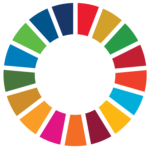
7 Sustainable Development Goals
CORVI helps countries reach seven different UN Sustainable Development Goals, including: 8: Decent Work and Economic Growth, 9: Industry, Innovation, and Infrastructure, 11: Sustainable Cities and Communities, 13: Climate Action, 14: Life Below Water, 15: Life on Land, and 16: Peace, Justice, and Strong Institutions.
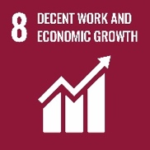
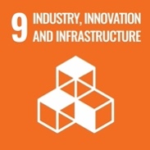
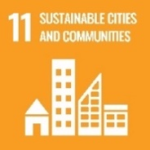
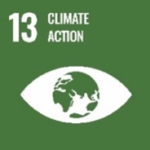
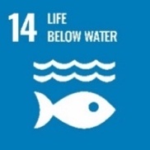
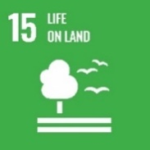
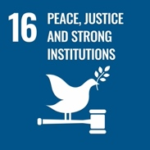
Risk Assessments & Recommendations
CORVI provides a data-driven city-specific risk assessment detailing a city’s challenges across 10 risk categories, ranging from fisheries to industry to political stability.
Risk Assessment
Coastal Cities & Island States Face Different & Interlocking Risks
Climate change is stressing social and environmental systems, impacting coastal ecosystems and the societies that depend on them.
Two-thirds of the global population will live in cities by 2050 and as cities expand, the climate risks these communities face are multiplying. As recent IPCC reports show, rising temperatures, extreme storms, and sea-level rise threaten physical infrastructure, the natural environment, and the economic security will continue to worsen, with coastal cities and island states at the forefront of these changes. Small Island Developing States and coastal Least Developed Countries are often the most affected and least able to prepare and respond to climate impacts.
Coastal cities and island states also face risks that originate outside the city or coastal areas. Inland, severe droughts threaten agricultural production, causing migration to urban centers. Ocean acidification and warming temperatures degrade the ecosystems and fisheries that underpin the blue economy of many coastal cities and island states. This risk is compounded by land-based stressors like pollution.
These interconnected issues have profound consequences for the social and political health of coastal cities and island states. Climate-related risks undermine the economic, food, and environmental security of cities, have the potential to increase tension and unrest, and hamper efforts to build resilience.
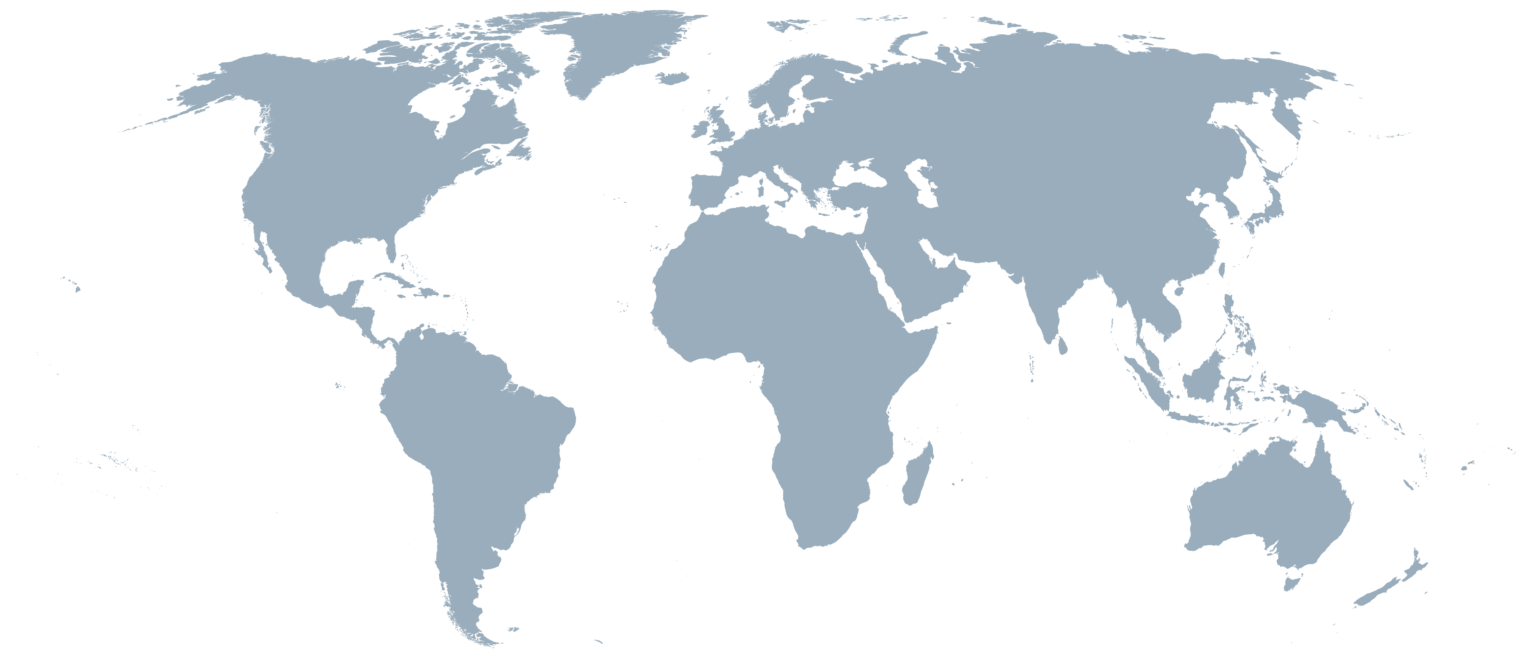
For small islands, extreme weather events can devastate low-lying urban areas
In September 2017, Hurricane Maria made landfall in Dominica. The storm resulted in significant storm surge, Torrential rain, and 160mph winds. Eighty percent of the population were directed affected and an estimated 95 percent of buildings were damaged or destroyed. In the capital Roseau, damage to critical infrastructure such as the wastewater treatment plant, electrical grid, and Princess Margaret Hospital severely impacted the health and livelihoods of its inhabitants. While targeted investments have since improved Dominica resilience to extreme storms, they continue to pose a long-term threat to the security of its citizens.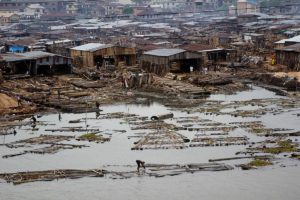
Migration to coastal megacities is stressing public and private infrastructure
In the port city of Lagos, Nigeria, population growth has been rapid, from an estimated 763,000 in 1960, to approximately 14 million today. Migration from rural areas, where climate change is a contributing factor, has increased population density in a city where two out of every three people live in informal housing settlements. These settlements which are often located at the water’s edge are increasingly at risk from storms and flooding.
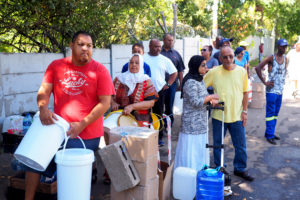
Climate stressors can also interact with risks which originate from outside the coastal city
In Cape Town, South Africa severe drought and outdated infrastructure has led to severe water shortages. Three years of reduced rainfall combined with growing demand led to severe water shortages and fears that Cape Town would run out of water. By reducing demand, Cape Town managed to avert "day zero". However, long-term social tensions about unequal water access between city residents remain.
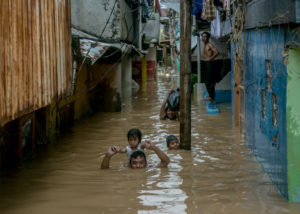
Climate and ocean risks can also exacerbate the overuse of natural resources
Jakarta, Indonesia’s capital city, has a population of 10 million. Extensive ground water extraction by city residents and industry, coupled with rising sea levels, has increased the risk of flooding. These risks led President Widodo in 2019 to announce that the capital city will move from Jakarta, on the island of Java, to the province of East Kalimantan on neighboring Borneo island.
Data Portal
Data from completed CORVI assessments is added to this open Data Portal, a tool for researchers and decision makers to interact with the data, compare risk, and assess regional trends.


Who uses CORVI?
CORVI has a wide range of applications for governments, international organizations, businesses, insurance, nonprofits, and lending institutions.
Conduct a CORVI Assessment
CORVI can be customized to meet a variety of needs, capacity, and partners. Conducting an assessment is a multi-step process involving local expertise, data collection, stakeholder engagement, and site visits.
Schedule a Consultation
Project Partners


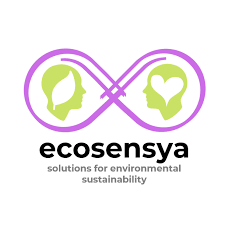


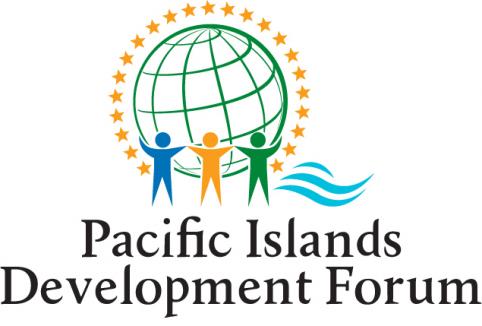

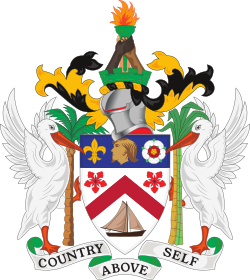
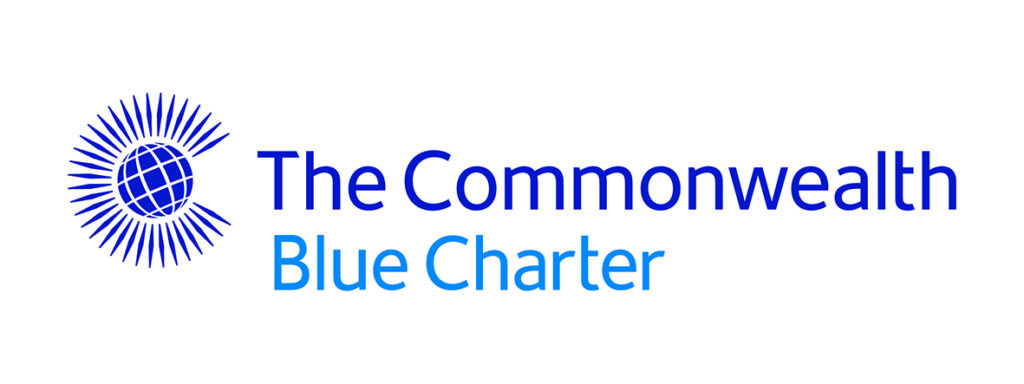
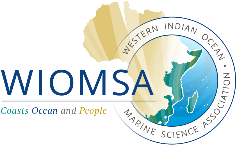
Supporters

